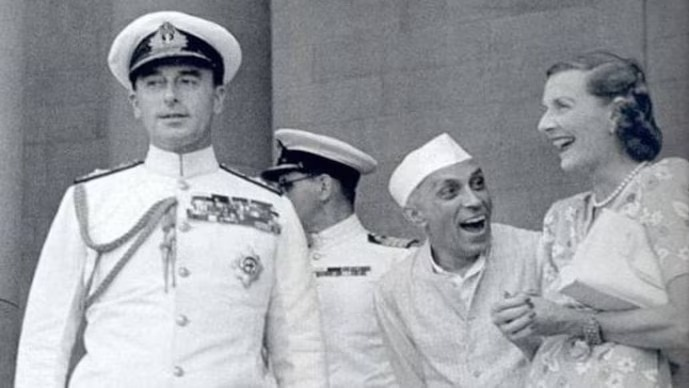The Prime Ministers’ Museum and Library (PMML) has formally requested the return of personal letters written by Jawaharlal Nehru, India’s first Prime Minister, to various individuals, including Edwina Mountbatten, Jayaprakash Narayan, and Albert Einstein.
The letters, reportedly taken from the Nehru Memorial Museum and Library in 2008 during the UPA regime, were sent to Congress leader Sonia Gandhi. BJP leaders have accused the Congress of withholding these documents, with particular focus on Nehru’s correspondence with Edwina Mountbatten, which continues to evoke political intrigue nearly 80 years later.
In a letter dated December 10, PMML member and historian Rizwan Kadri wrote to Congress MP Rahul Gandhi, urging him to retrieve the original letters from Sonia Gandhi or provide photocopies or digital versions.
This followed a similar request made to Sonia Gandhi in September. Kadri highlighted that these letters, featuring communication with key figures like Albert Einstein, Padmaja Naidu and Govind Ballabh Pant, are invaluable resources for scholars and researchers.
Kadri noted that Sonia Gandhi had reportedly deputed someone to take 51 cartons of Nehru’s papers from the library in 2008. BJP MP Sambit Patra reiterated this claim, questioning the secrecy surrounding the documents and demanding transparency.
Nehru’s letters to Edwina Mountbatten remain inaccessible, but Edwina’s daughter, Pamela Hicks, shed light on their relationship in her memoir Daughter of Empire: Life as a Mountbatten.
Hicks described their bond as a “profound relationship” founded on mutual respect and companionship. She dismissed speculation about a physical affair, stating they were rarely alone due to constant staff and security presence.
Pamela Hicks recounted that Edwina wanted to leave an emerald ring for Nehru before departing India, ultimately gifting it to his daughter, Indira Gandhi. Nehru’s farewell speech to Edwina, lauding her contributions, further underscored their close relationship.
Despite this, political figures and commentators are questioning the secrecy around the letters. BJP spokesperson Sambit Patra and others on social media have demanded answers, alleging that the Congress is attempting to hide information of public interest. Patra cited passages from Maulana Abul Kalam Azad’s India Wins Freedom to suggest Edwina’s influence on Nehru’s decisions.
The PMML asserts that these letters offer “invaluable insights into a critical period of Indian history” and could benefit researchers. However, the debate raises ethical questions about privacy and the public’s right to access personal correspondence of historical figures.
Nehru’s letters, written in a personal capacity, touch on sensitive aspects of India’s diplomatic and political history. While some argue that these documents could deepen understanding of the period, others emphasise the potential intrusion into the private lives of individuals no longer able to defend themselves.
Kadri’s letter noted that Nehru’s private papers were given to the PMML for safekeeping by Indira Gandhi in 1971, not as an outright donation.
As the letters “provide invaluable insights into a critical period of Indian history”, the PMML sought its return to their archives.
“We understand that these documents may hold personal significance for the Nehru family. However, the PMML believes that making these historical materials… more widely accessible would greatly benefit scholars and researchers,” the letter stated.
The historian urged the Gandhis to facilitate their return to the archives to honour their historical significance. Meanwhile, the controversy surrounding the Nehru-Edwina letters continues to spark debate over their contents and the ethical considerations of releasing them.
Also Read: Sri Lanka Will Not Allow Anti-India Actions, Says President Dissanayake in Delhi













